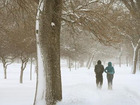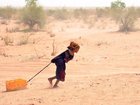Deep in the hilly grasslands of remote Inner Mongolia, twin smoke stacks rise more than 200 feet into the sky, their steam and sulfur billowing over herds of sheep and cattle. Both day and night, the rumble of this power plant echoes across the ancient steppe, and its acrid stench travels dozens of miles away.
This is the first of more than 60 coal-to-gas plants China wants to build, mostly in remote parts of the country where ethnic minorities have farmed and herded for centuries. Fired up in December, the multibillion-dollar plant bombards millions of tons of coal with water and heat to produce methane, which is piped to Beijing to generate electricity.
 Full Story
Full Story
A Japanese whaling vessel and its crew were being held in Russia on Friday after the ship entered Russian territorial waters without permission, Tokyo said.
The 712-tonne Shonan-maru No.2 was ordered into a Russian port on August 15 after sailing through the Sea of Okhotsk off Sakhalin island, an official from Japan's Fisheries Agency said.
 Full Story
Full Story
Scientists using GPS technology to study the extent of the western U.S. drought said Thursday the water shortage is causing parts of the Earth's crust to rise.
Some 62 trillion gallons -- equivalent to a six-inch (15-centimeter) layer of water -- have been lost since 2013, causing a slight upward lift across the region, according to the study in the journal Science.
 Full Story
Full Story
The Old Farmer's Almanac, the familiar, 223-year-old chronicler of climate, folksy advice and fun facts, is predicting a colder winter and warmer summer for much of the nation.
Published Wednesday, the New Hampshire-based almanac predicts a "super-cold" winter in the eastern two-thirds of the country. The west will remain a little bit warmer than normal.
 Full Story
Full Story
Neanderthals shared Europe with modern humans for as long as five millennia until they died out 40,000 years ago -- "ample time" for cultural exchanges and interbreeding, researchers said on Wednesday.
While there is no evidence that the two groups lived closely together, they did co-exist for anything from 25 to 250 generations, depending on the region, according to a paper published in the journal Nature.
 Full Story
Full Story
A chemical used in dry cleaning and fire extinguishers may have been phased out in recent years but NASA said Wednesday that carbon tetrachloride (CCl4) is still being spewed into the atmosphere from an unknown source.
The world agreed to stop using CC14 as part of the Vienna Convention on Protection of the Ozone Layer and its Montreal Protocol, which attained universal ratification in 2009.
 Full Story
Full Story
Seals and sea lions probably brought tuberculosis to the Americas centuries before Christopher Columbus first set foot there, scientists said Wednesday.
A new study challenges the theory that Europeans introduced TB to the New World, where it killed millions of indigenous Americans along with other foreign diseases like whooping cough, chicken pox and flu.
 Full Story
Full Story
They slipped into southwest France 10 years ago in a pottery shipment from China and have since invaded more than half the country, which is fighting back with drones, poisoned rods and even chickens.
The Asian hornet, or vespa velutina nigrithorax, is considered a "public enemy" in parts of France where it devours native bees and, experts say, threatens biodiversity.
 Full Story
Full Story
The octopus's ability to camouflage itself has inspired a new kind of thin, flexible fabric that can automatically match patterns, U.S. researchers said Tuesday.
Creatures of the ocean known as cephalopods -- including cuttlefish, squid and octopuses -- are naturally equipped with sensors in their skin that help in some way to mimic the look of their surroundings.
 Full Story
Full Story
A dearth of rainfall in the Sahel could have "severe consequences" for food and agriculture across the region, a U.N. official said Tuesday, urging urgent action to tackle droughts.
"The countries in the Sahel in general are suffering from a lack of rain this winter, the consequences of which could be severe," Coumba Mar Gadio, Mauritania's U.N. representative, warned at a meeting of regional environment ministers in Nouakchott.
 Full Story
Full Story



